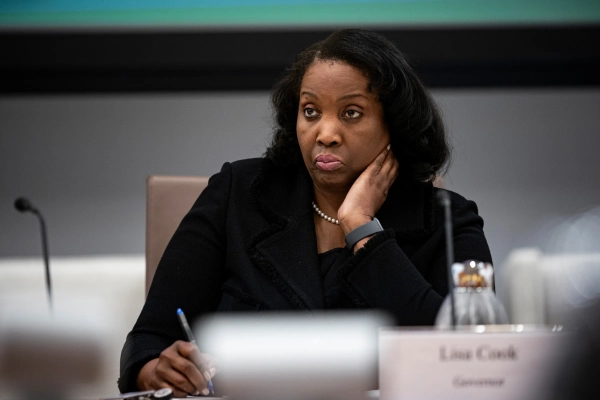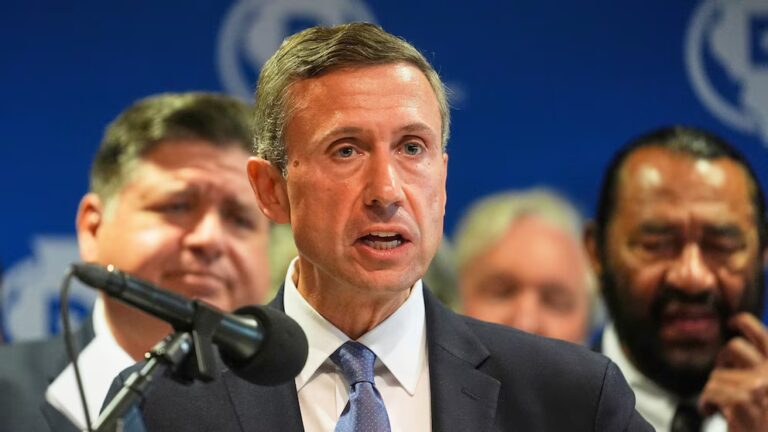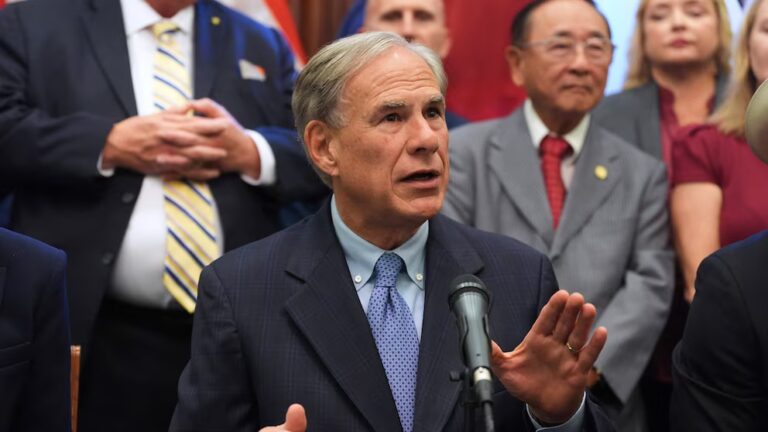
Donald Trump has launched an assault on the Federal Reserve’s autonomy.
This week, the president directed the dismissal of Lisa Cook from the central bank’s leadership panel. Appointed by Joe Biden, Cook is an economist who holds one of 12 votes influencing decisions on interest rate adjustments.
Trump seeks a compliant central bank. However, federal law bars presidents from replacing Fed governors prematurely unless misconduct or dereliction is proven. To circumvent this, his administration initiated a probe targeting Cook, alleging past mortgage application irregularities. Cook disputes these claims and maintains her legal right to remain in her role.
Many progressives view Trump’s targeting of Cook as part of his broader erosion of democratic norms. His Justice Department appears to prioritize political favors over impartial enforcement, while his FTC uses antitrust actions to pressure corporate alignment with White House agendas. By challenging Fed autonomy, critics argue Trump aims to bend another institution to consolidate power.
David Wessel of the Brookings Institution condemned Trump’s effort to influence monetary policy as “another strike against democratic institutions.” Economist Paul Krugman echoed this sentiment in recent commentary.
Yet some left-leaning analysts distinguish Trump’s Fed interference from his other institutional attacks. They argue that central bank independence inherently conflicts with democratic principles, as unelected officials wield significant economic influence without direct accountability. Historian Adam Tooze advocates rethinking central banking through democratic reform rather than defending current structures.
Progressive critiques highlight valid concerns. The Fed grants regional business leaders formal input while excluding labor and consumer advocates. This imbalance—combined with operational independence—risks allowing financial elites to indirectly control fiscal policy through rate threat politics.
However, Trump’s actions remain undemocratic in key respects. Central bank independence may align with public interest when balanced against electoral pressures.
Related
- Trump just did the one thing the Supreme Court said he can’t do
Fed autonomy could serve democratic goals
The Fed’s mandate originates with Congress, which tasks it with maximizing employment and maintaining price stability. While lawmakers set these objectives, the central bank determines implementation through interest rate tools. Fourteen-year terms for governors protect this decision-making from political cycles.
This structure addresses a policy dilemma: rate cuts deliver immediate economic boosts but deferred inflationary risks. Elected leaders might prioritize short-term gains before elections, as Nixon did in 1972, potentially destabilizing long-term economic health.
Though based on skepticism of electoral incentives, this system aligns with voter priorities. Polls consistently show public support for price stability and growth—goals better achieved through independent analysis of complex monetary levers. Historical data indicates autonomous central banks correlate with lower inflation rates.
Related
- The bigger plan behind Trump’s attempted Fed firing
Institutional delegation supports democratic governance
Congress frequently delegates technical authority while retaining oversight—a practice progressives defend elsewhere. The Consumer Financial Protection Bureau, designed with leadership insulation from political removal, exemplifies this approach. Progressives previously championed such independence as necessary for resisting industry capture before courts weakened these protections.
While Fed and CFPB structures differ, the principle remains: controlled delegation can enhance democratic outcomes. Congress could revoke Fed independence but has deliberately maintained it through legislation. Trump’s attempt to bypass this framework through manufactured charges violates procedural democracy, prioritizing personal political gains over institutional stability.
Eroding legal constraints threatens democratic foundations
Reforming Fed governance to include broader representation remains valid. The current system disproportionately favors business perspectives, while congressional dysfunction stifles legislative updates. However, presidential overreach exacerbates these flaws rather than solving them.
By flouting removal protocols, Trump undermines rule-of-law principles essential to democracy. His actions prioritize personal control over collective governance, steering toward authoritarianism rather than democratic renewal. Defending institutional guardrails remains crucial even as debates continue about optimizing central bank accountability.
Source: vox.com






